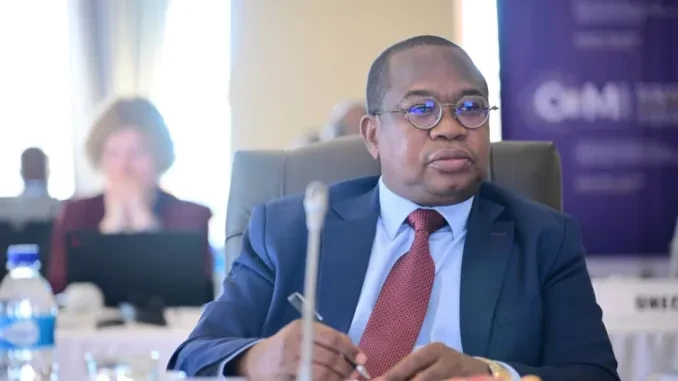
“GIVEN the chance, I would have loved to study pure sciences instead of commercials for Advanced Level,” said Patrick Bhaulen, a Lower Sixth student at a high school in the dormitory town of Chitungwiza, 27km from Harare. Report by Sofia Mapuranga Own Correspondent
Fortunate to get a Form 5 place at the only day-school that landed tenth position in the last Zimbabwe Schools Examinations Council (Zimsec) results at “A” Level, Zengeza 1 High, the 16-year-old said for him, failure was not an option.
Bhaulen did Ordinary level education at Mapombo Secondary School in Mudzi District, where he would walk 20km daily to and from school.
“We would study using paraffin lamps towards examinations and finish around 12 midnight. I would get home late at night and sleep for a few hours before walking back to school to get there on time,” he said.
Rated one of the best regionally and continentally, Zimbabwe’s education system is known to churn out highly competent professionals, whose services, skills and expertise are sought after the world over.
The last Zimsec results reflected that most mission and private schools topped the list with best results, while rural and urban schools trailed behind.
Education minister David Coltart said there were gross disparities on the availability of and accessibility to learning facilities and resources for children in Zimbabwe.
“Children from rural schools are mostly disadvantaged because besides walking long distances to school, they do not have adequate facilities to enable them attain good results in their final examinations,” he said.
- Chamisa under fire over US$120K donation
- Mavhunga puts DeMbare into Chibuku quarterfinals
- Pension funds bet on Cabora Bassa oilfields
- Councils defy govt fire tender directive
Keep Reading
Coltart said there were a few qualified teachers in rural schools and the majority of the schools had no laboratories to assist students pursue science subjects.
“Qualified teachers prefer urban schools because the majority of them can afford to pay incentives unlike their rural counterparts,” he said.
He said this was the reason why the Education ministry had proposed to set up a fund aimed at providing incentives for rural school teachers as a way of encouraging them to work within their environments.
During the launch of Phase Two of the 2011-2015 National Action Plan for Orphans and Vulnerable Children, the Labour and Social Services minister Paurina Mpariwa, said: “The government remains fully committed to ensuring that all children in Zimbabwe and their families have their rights fulfilled in line with national, regional and international requirements, to which the country has committed itself.”
A signatory to various international and regional instruments, Zimbabwe is one of the countries aiming to provide universal access to primary education by 2015.
According to a Unicef-SNV primary schools assessment report (2009), school enrolments were adversely affected by the 2008 elections and in the third term by teacher industrial action.
The report asserts that “during the 2008 third term, school enrolments were 16,3% below those for the first term for Grade Three and Six.”
It further indicated that 88,6% of teachers interviewed in boarding schools believed there was a lower intake of students.
A headmaster from Muzokomba area in Buhera South said rural students were just as competent as those from private or mission schools, but poor facilities and inadequate infrastructure disadvantaged their performance.
“We have a lot of students with so much potential, but they are failing to utilise their maximum potential because we only offer arts and commercial subjects for “A” Level, since we do not have laboratories. Most of our teachers are here on a temporary basis,” he said.
Education Coalition of Zimbabwe board chairperson — who is also Progressive Teachers’ Union of Zimbabwe communications officer Osward Madziva — said the existing education system was perpetuating inequalities within the sector and society.
“The existing education system is just a measurement of resources because schools that can afford certain facilities are better positioned to acquire better results at final examinations,” he said.
The main challenge was that scientific methods of assessing literacy that have been used have ignored that the current education system was producing “rulers and followers, doctors and patients and magistrates and prisoners”, which was an error that should be rectified.
“It is a tragedy that the reasons for education have been distorted with more focus being placed on passing examinations. The system is now exam-oriented yet the individual student investment is very poor,” he added.











